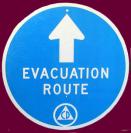
Baby Boomers don't like talking to their parents about estate planning, and for a number of logical reasons. They don't want to appear greedy, they don't want to acknowledge their parents' mortality and they're just not comfortable having such a significant yet stressful conversation with their folks.
But the Hartford Financial Services Group recently released the results of a study suggesting that Boomers should get over their hang-ups and have that chat with mom and dad because it's what their parents really want.
Hartford surveyed older parents ages 70-79 and adults 45-65, primarily Boomers with at least one living parent. Here are the key findings:
- 76 percent of older parents say they are very comfortable with talking about their estate compared to 45 percent of Boomers who say they are very comfortable
- Parents are far more comfortable discussing the content of their wills than their children realize, with 71 percent of parents saying they are very comfortable compared with 54 percent of children
- Boomers underestimate the importance that parents place on providing for their heirs, improving their children's lifestyles, helping their children prepare for retirement, and helping grandchildren attend college
- Significantly more older parents report having important estate planning documents such as living wills and durable power of attorneys than Boomers report they are aware of
- Almost all older parents report talking to their children about their estate plan but fewer Boomers claim to have had this discussion
- In general, Boomers say that their actual knowledge about their parents' estate issues is significantly less than their parents claim









